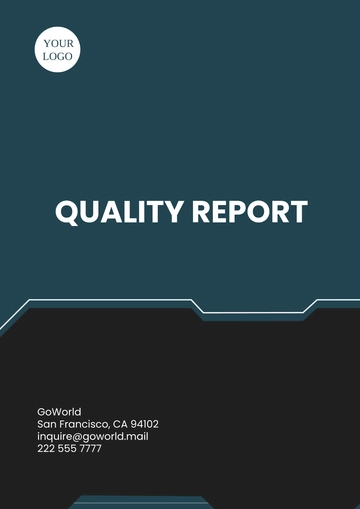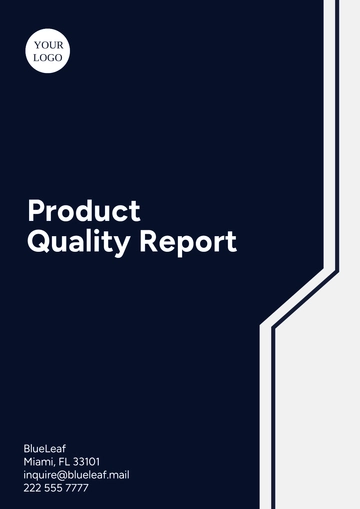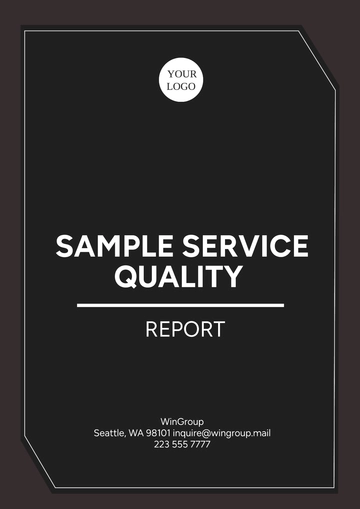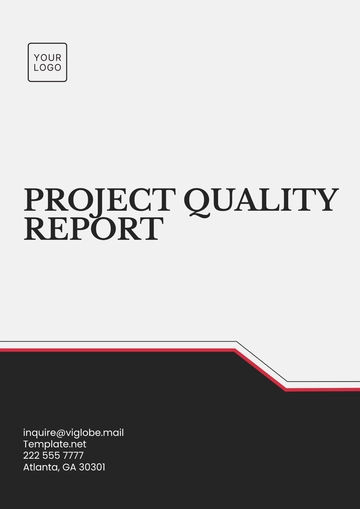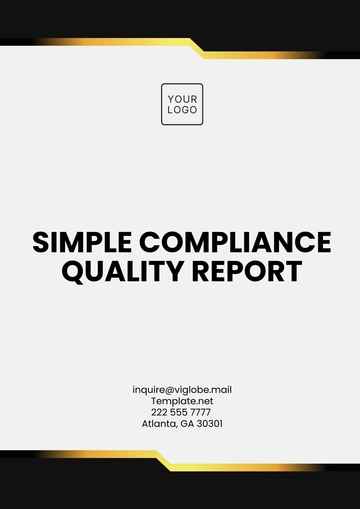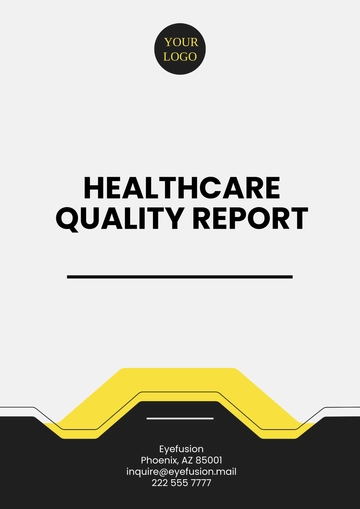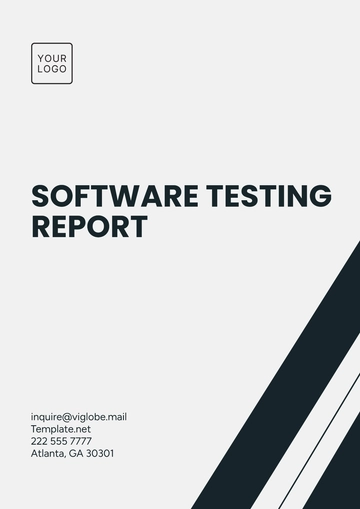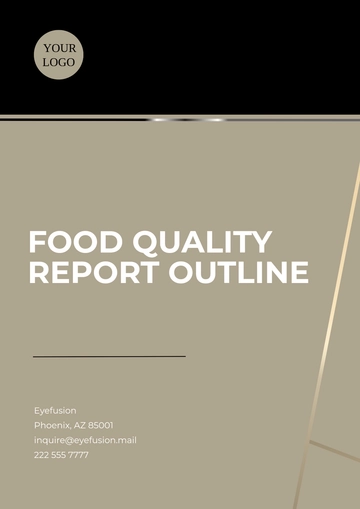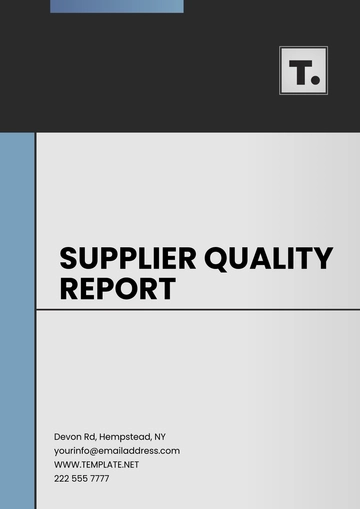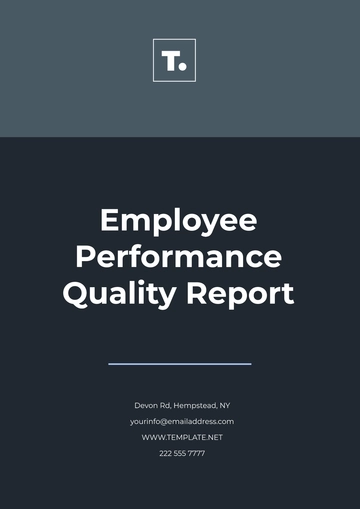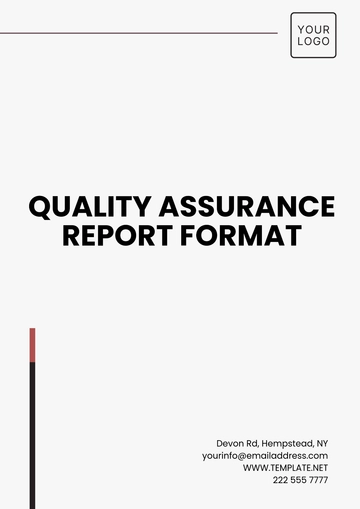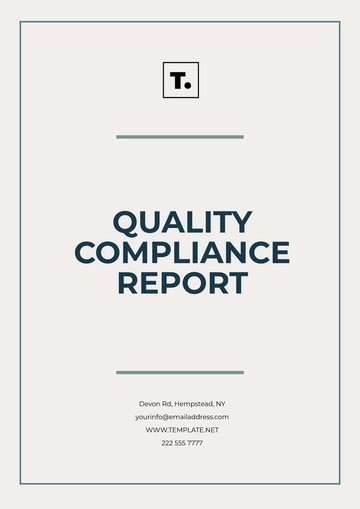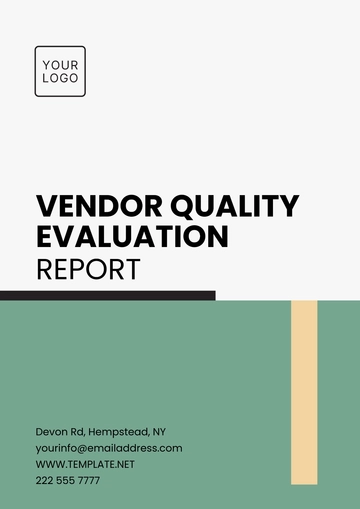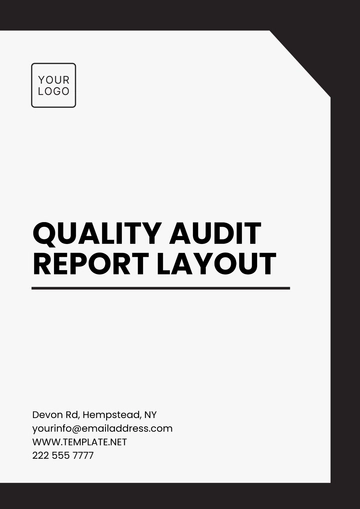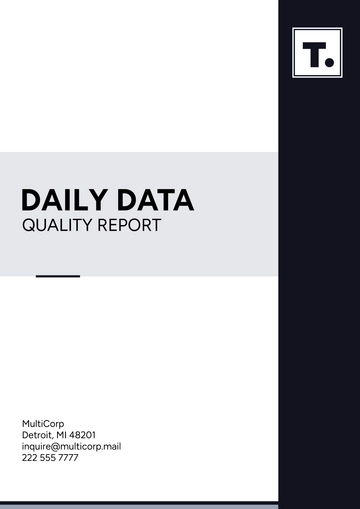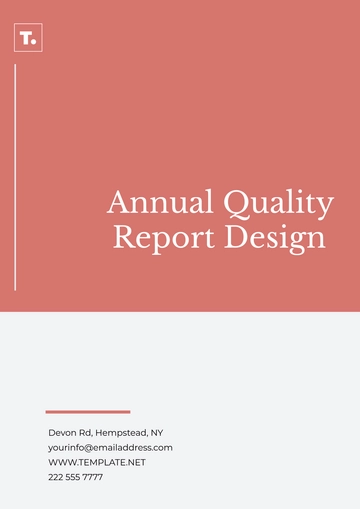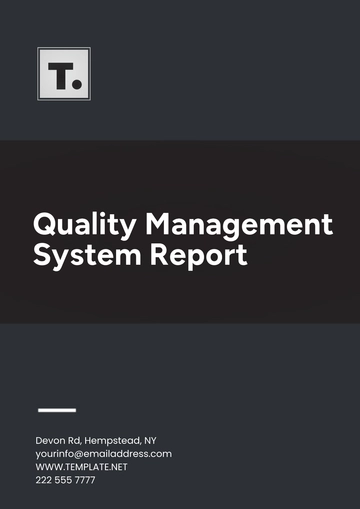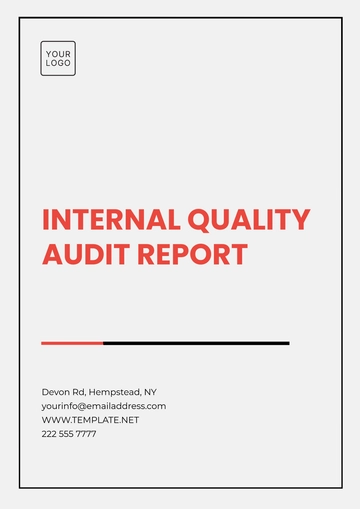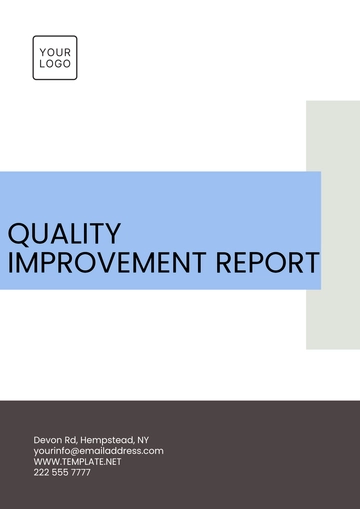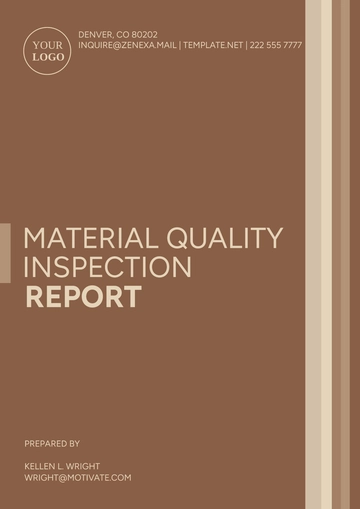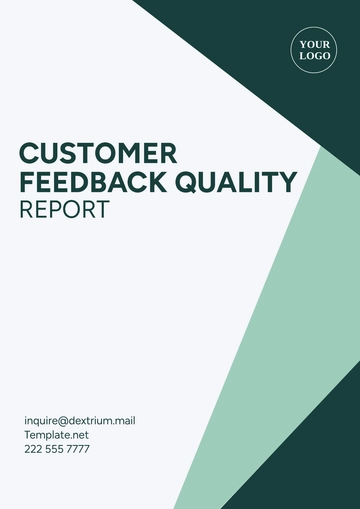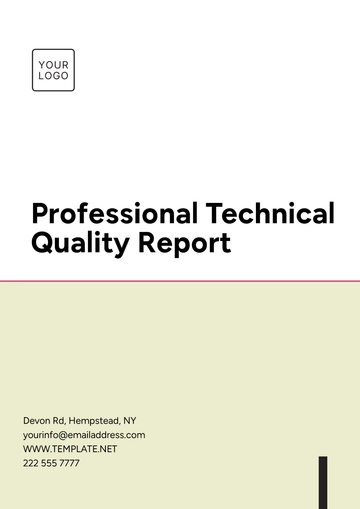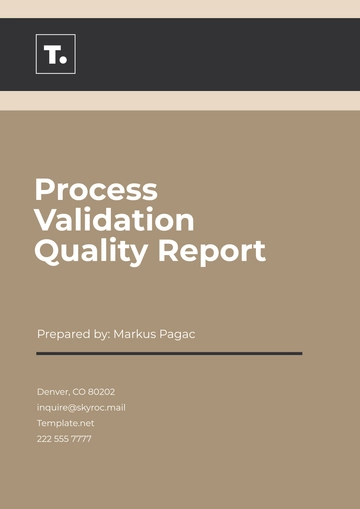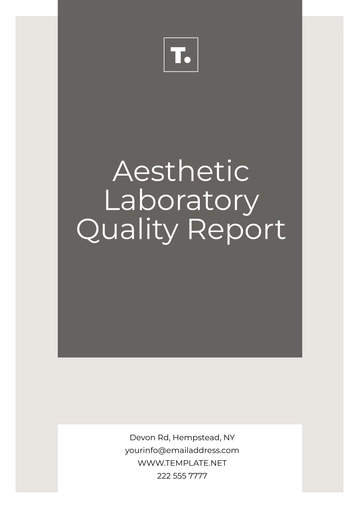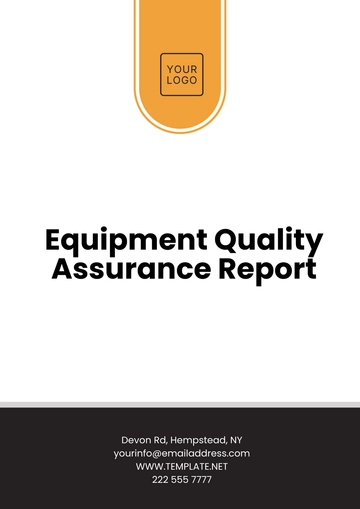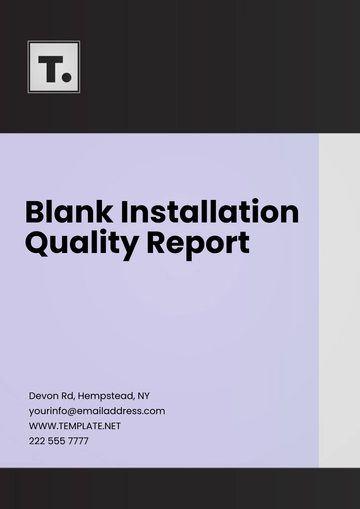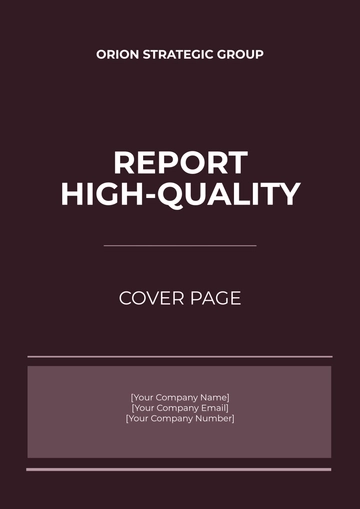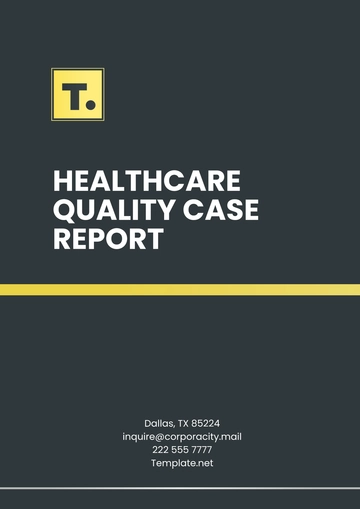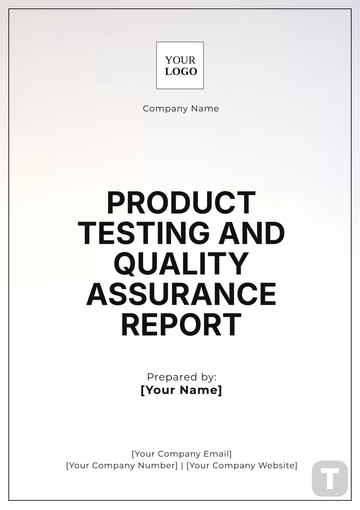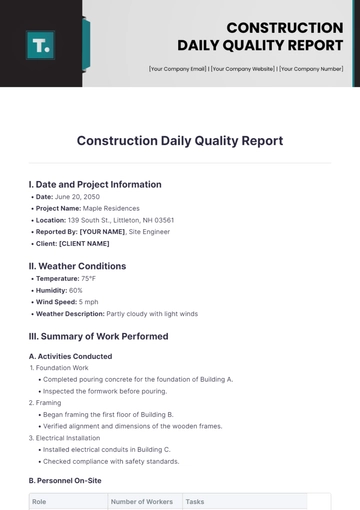Free Aesthetic Laboratory Quality Report
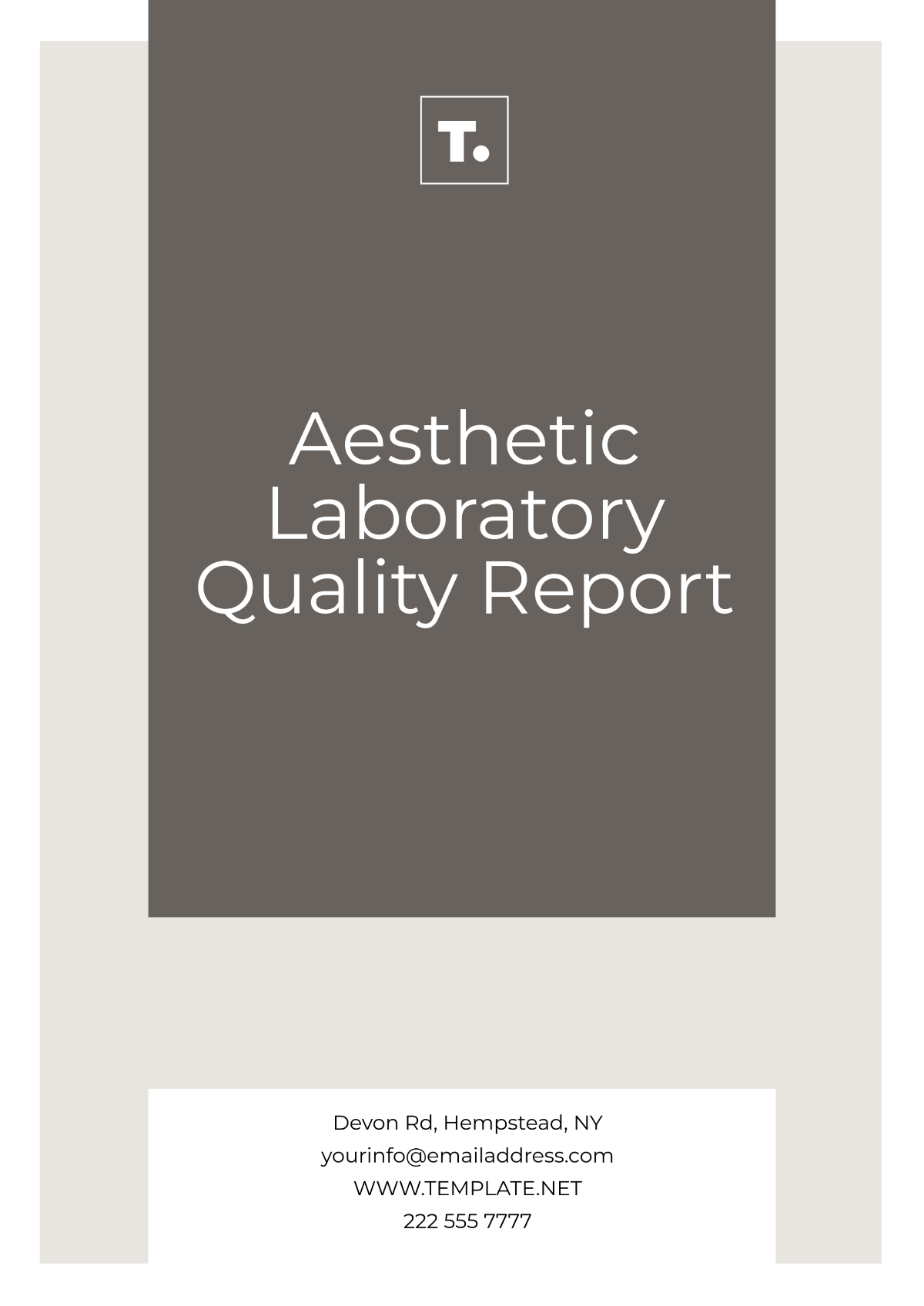
Introduction
This Aesthetic Laboratory Quality Report aims to provide a comprehensive analysis of the quality control measures and outcomes within our laboratory. The goal is to ensure that all operations meet the highest standards of safety, precision, and reliability. This report details our protocols, evaluations, and quality improvement strategies.
Quality Control Measures
Standard Operating Procedures (SOPs)
Standard operating procedures (SOPs) are essential to maintaining consistency in laboratory operations. All staff members are required to adhere strictly to these SOPs. Regular training and assessments are conducted to ensure compliance and understanding.
Calibration and Maintenance
Equipment calibration and maintenance are crucial for accurate results. Our laboratory adheres to a strict schedule for calibration and routine maintenance tasks, ensuring all equipment is functioning at optimal levels. The following table summarizes the schedule:
Equipment | Calibration Frequency | Last Calibration Date |
|---|---|---|
Spectrophotometer | Monthly | 2023-09-18 |
Centrifuge | Quarterly | 2023-08-12 |
pH Meter | Weekly | 2023-10-01 |
Quality Assurance Tests
Quality assurance tests are routinely conducted to verify the consistency and reliability of laboratory outcomes. These include precision, accuracy, and repeatability tests on sample analyses. Deviations are documented and addressed through corrective actions.
Data Analysis
Sample Processing Accuracy
Sample processing accuracy is a critical performance metric. The following chart depicts the accuracy levels measured over the past six months:
April 2023: 98.3%
May 2023: 98.9%
June 2023: 99.1%
July 2023: 98.7%
August 2023: 99.5%
September 2023: 99.8%
Precision Measurement Variability
Precision measurement variability is analyzed to ensure tight control on laboratory results. The calculated variance remains below 0.2%, showing stable control over the measurement processes.
Quality Improvement Strategies
Staff Training Programs
Continuous training is provided to laboratory staff to keep them informed on the latest techniques and safety protocols. Training sessions include hands-on activities, guest lectures, and workshops.
Feedback and Review Mechanisms
Regular feedback is solicited from staff regarding operational procedures and protocols. Review sessions are conducted quarterly to discuss potential improvements and implement necessary changes.
Advanced Technological Integration
The laboratory is committed to adopting cutting-edge technology to improve accuracy and efficiency. New software tools for data analysis and record-keeping have been integrated, enhancing operational productivity.
Conclusion
This report demonstrates the laboratory's commitment to maintaining high quality standards. Continuous monitoring, rigorous training, and modern technologies ensure that our laboratory remains at the forefront of aesthetic scientific research. While current metrics suggest robust procedures, ongoing evaluation and improvement will continue to drive excellence in all operations.
- 100% Customizable, free editor
- Access 1 Million+ Templates, photo’s & graphics
- Download or share as a template
- Click and replace photos, graphics, text, backgrounds
- Resize, crop, AI write & more
- Access advanced editor
The Aesthetic Laboratory Quality Report Template offered by Template.net is a customizable and editable solution perfect for documenting laboratory assessments. This downloadable and printable template allows you to easily tailor the content to your needs. With seamless integration into our AI Editor Tool, you can modify the report effortlessly for a professional, polished presentation.
You may also like
- Sales Report
- Daily Report
- Project Report
- Business Report
- Weekly Report
- Incident Report
- Annual Report
- Report Layout
- Report Design
- Progress Report
- Marketing Report
- Company Report
- Monthly Report
- Audit Report
- Status Report
- School Report
- Reports Hr
- Management Report
- Project Status Report
- Handover Report
- Health And Safety Report
- Restaurant Report
- Construction Report
- Research Report
- Evaluation Report
- Investigation Report
- Employee Report
- Advertising Report
- Weekly Status Report
- Project Management Report
- Finance Report
- Service Report
- Technical Report
- Meeting Report
- Quarterly Report
- Inspection Report
- Medical Report
- Test Report
- Summary Report
- Inventory Report
- Valuation Report
- Operations Report
- Payroll Report
- Training Report
- Job Report
- Case Report
- Performance Report
- Board Report
- Internal Audit Report
- Student Report
- Monthly Management Report
- Small Business Report
- Accident Report
- Call Center Report
- Activity Report
- IT and Software Report
- Internship Report
- Visit Report
- Product Report
- Book Report
- Property Report
- Recruitment Report
- University Report
- Event Report
- SEO Report
- Conference Report
- Narrative Report
- Nursing Home Report
- Preschool Report
- Call Report
- Customer Report
- Employee Incident Report
- Accomplishment Report
- Social Media Report
- Work From Home Report
- Security Report
- Damage Report
- Quality Report
- Internal Report
- Nurse Report
- Real Estate Report
- Hotel Report
- Equipment Report
- Credit Report
- Field Report
- Non Profit Report
- Maintenance Report
- News Report
- Survey Report
- Executive Report
- Law Firm Report
- Advertising Agency Report
- Interior Design Report
- Travel Agency Report
- Stock Report
- Salon Report
- Bug Report
- Workplace Report
- Action Report
- Investor Report
- Cleaning Services Report
- Consulting Report
- Freelancer Report
- Site Visit Report
- Trip Report
- Classroom Observation Report
- Vehicle Report
- Final Report
- Software Report
